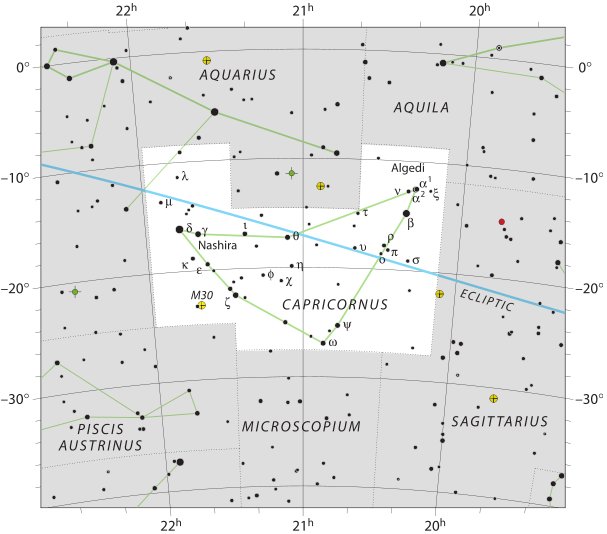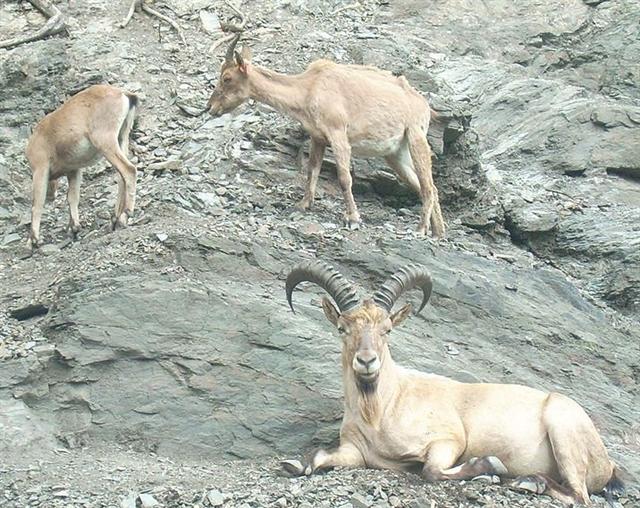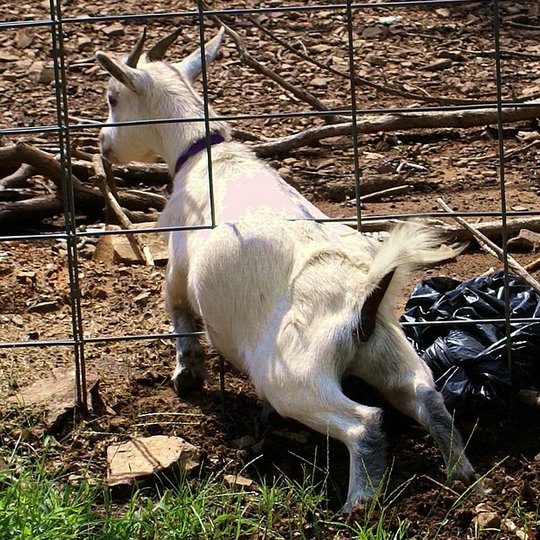We need all the listed stars also at the end of
January, from 8h / 20h and onwards:
| Al Naam 4 |
5 |
6 (250) |
| January 19 |
20 (385) |
21 |
 |
 |
 |
| Ca11-20 |
Ca11-21 (305) |
Ca11-22 |
| te inoino |
te hokohuki |
te moko |
| 20h (304.4) |
no star listed |
ξ Capricorni (305.8) |
| δ Pavonis (304.4) |
| July 21 |
22 |
23 (204) |
| Heka 13 |
Alhena 1 |
2 (68) |
| 8h (121.7) |
Regor (122.7), Tegmine (123.3) |
Al Tarf (124.3) |
| Heap of Fuel (122.1) |
| Al Naam 7 |
8 |
9 |
10 (254) |
| January 22 |
23 |
24 |
25 (390) |
 |
 |
 |
 |
| Ca11-23 |
Ca11-24 (308) |
Ca11-25 |
Ca11-26 |
| te inoino erua |
te hokohuki |
te moko |
| Gredi (307.2), σ Capricorni (307.5) |
Alshat (307.9), Dabih (308.0), κ Sagittarii (308.1), Sadir (308.4) |
Peacock (308.7) |
Okul (309.6), Bos (309.9), ο Capricorni (310.2) |
| July 24 |
25 |
26 |
27 (208) |
| Alhena 3 |
4 |
5 |
6 (72) |
| Bright Fire (125.4) |
Avior (126.4) |
ο Ursa Majoris (127.4) |
θ Cancri (128.2), η Cancri (128.5) |
| Al Naam 11 |
12 (256) |
13 |
Al Baldaah 1 |
| January 26 |
27 (392) |
28 |
29 |
 |
 |
 |
 |
| Ca11-27 |
Ca11-28 |
Ca11-29 |
Ca11-30 (314) |
| etoru inoino |
te hokohuki - kua haga te mata o te moko |
| φ Pavonis (311.2) |
ρ Pavonis (311.7), Rotanev (312.3) |
τ Capricorni (312.6), Svalocinm, υ Capricorni, υ Pavonis (312.8), Deneb Cygni (313.5) |
β Pavonis (313.6), Yue (314.3), Gienah Cygni (314.5) |
| July 28 |
29 (210) |
30 |
31 |
| Alhena 7 |
8 |
9 (75) |
10 |
| no star listed |
π¹ Ursa Majoris, δ Hydrae (129.6), Al Minhar al Shujā, Museida (129.9), Beehive (130.4), Xestus (130.5) |
Ascellus Borealis (130.9), η Hydrae (131.0), Ascellus Australis (131.4) |
Koo She (131.6), ε Hydrae (131.9), ι Cancri (132.0), ρ Hydrae (132.4) |
| Al Baldaah 2 |
| January 30 |
 |
| Ca11-31 |
| te inoino |
| σ Pavonis (314.7), Albali (314.8) |
| August 1 (213) |
| Alhena 11 (77) |
| no star listed |
| Al Baldaah 3 |
4 |
5 |
6 |
7 |
8 (265) |
| January 31 |
February 1 |
2 |
3 |
4 (400) |
5 (36) |
 |
 |
 |
 |
 |
 |
| Ca11-32 |
Ca12-1 |
Ca12-2 |
Ca12-3 |
Ca12-4 |
Ca12-5 |
| te rakau i to vai |
Te moko |
te marama |
rima o kava |
manu |
mauga tu taki |
| Baten Algiedi (315.8), μ Aquarii (316.0) |
no stars listed |
Armus (319.0), Dorsum (319.3) |
21h (319.6) |
ο Pavonis (320.8) |
| χ Capricorni (320.0), ν Aquarii (320.3) |
| August 2 (214) |
3 |
4 |
5 |
6 |
7 |
| Alhena 12 |
13 |
Murzim 1 (80) |
2 |
3 |
4 |
| ζ Hydrae (134.1) |
Acubens, Talitha Borealis (135.0) |
ρ Ursa Majoris (135.6), ν Cancri (136.0), Talitha Australis (136.1) |
9h (137.0) |
σ² Ursa Majoris (137.6), τ Ursa Majoris (137.7), ξ Cancri (137.8) |
Miaplacidus (139.3) |
| ω Hydrae (136.8), σ¹ Ursa Majoris (137.0), κ Cancri (137.3), Alsuhail (137.5) |
| Al Baldaah 9 |
10 |
11 (268) |
| February 6 |
7 (403) |
8 |
 |
 |
 |
| Ca12-6 |
Ca12-7 |
Ca12-8 (324) |
| tagata hoi haatu |
ka huri ra |
ki te mauga |
| φ Capricorni (321.8) |
Alderamin (322.9), Dai (323.5) |
γ Pavonis (324.1) |
| August 8 (220) |
9 |
10 |
| Murzim 5 (84) |
6 |
7 |
| Tureis (139.8) |
Markab Velorum (141.5) |
Al Minhar al Asad (141.6), Alphard (142.3) |
In G too the beginning of February shows day 399 to be a very special place:
 |
 |
 |
 |
|
Gb1-24 |
Gb1-25 |
Gb1-26 (256) |
Gb2-1 (*320) |
| |
|
Armus (319.0),
Dorsum (319.3) |
χ Capricorni
(320.0),
ν Aquarii (320.3) |
|
February 1 |
2 |
3 (399) |
21h (319.6) |
|
Al Baldaah 4 |
5 |
6 |
7 (264) |
Armus (η ) and Dorsum (θ) are on one
side of the center of Capricorn which in rongorongo times had χ on
the other side of 21h:

In manzil day 250 (cfr Ca11-22) the first star of the Capricorn (ξ)
rose with the Sun, in January 21 (Al Naam 6). In the nakshatra sky
was manzil day 68 with Al Tarf (The End, β Cancri) close to the
Moon.
The Goat (originating
from the ibex and therefore good at climbing) was high up (in
time) and opposite to Cancer low down.

Goats are good at escaping through
fences:

The last Sagittarius star
was κ at Ca11-24 and rising in the day after Gredi.
|
κ Aurigae |
Tejat Prior |
|
... |
|
κ Lyrae |
η Sagittarii |
|
κ Sagittarii |
Gredi
(α Capricorni) |
The Babylonian name Goatfish for
Capricornus probably indicates how one half is high up like the goats
and one half low down like the fishes. The name would be incomprehensible
if we did not recognize it as a description of a position in time.

|










